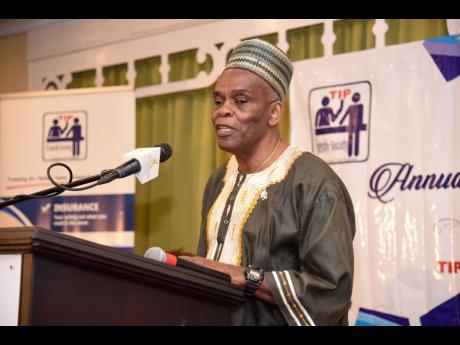Specialists urge parents to learn about children’s disabilities
WESTERN BUREAU:
Family Literacy specialist Dr Hixwell Douglas is urging parents of special-needs children to educate themselves about their children’s disabilities to know how to address any related behavioural issues.
“Know about your child’s disability because if you do not know, you cannot tell people about it and you will not know what to ask for, and information is key,” Douglas said while addressing last Thursday’s virtual town hall for parents of special-needs children, which was staged by the Ministry of Education’s Special Education Unit.
“It is well known that knowledge is power, and when a parent understands for himself or herself the nature and severity of a child’s disability, it empowers the parent because that parent will have the information on hand to know what the nature of the condition is,” explained Douglas. “In that way, the parent is able to advocate for services, programmes, and community and family support.” Douglas, who is visually impaired, noted that many disabilities have certain associated behaviours or actions that parents can look out for.
“If you see a child rubbing the eyes, like myself as a child, it tells you something, or if I am staring into your mouth, it tells you that I may not be hearing, but I am lip-reading, so it is not that I am ‘fass’,” he said. “A child who has autism and is constantly covering up the ears or spinning and doing interesting things, it simply means that these behaviours are associated with the disability.”
Dianne Loton-Franklyn, a behavioural therapist at the Jamaican Association on Intellectual Disabilities, also urged parents to take note if schools are constantly complaining of their child’s perceived disruptive behaviour.
“That is a red flag to say something may be wrong. If that happens, then you have to be an advocate for your child,” said Loton-Franklyn. “You are going to have to go to the school’s guidance counsellor and say, ‘Listen to me, I am not sure if something is actually wrong with my child, but just in case, where could I go to find out’?”
The virtual town hall was held on the same day as the annual celebration of International Day of People with Disabilities – December 3 – celebrated under the theme ‘Not All Disabilities Are Visible’.
The Jamaica Council for Persons with Disabilities was also celebrating its annual Disabilities Awareness Week, tagged ‘Build Back Better: An Inclusive Society for Persons With Disabilities post-COVID-19’.

